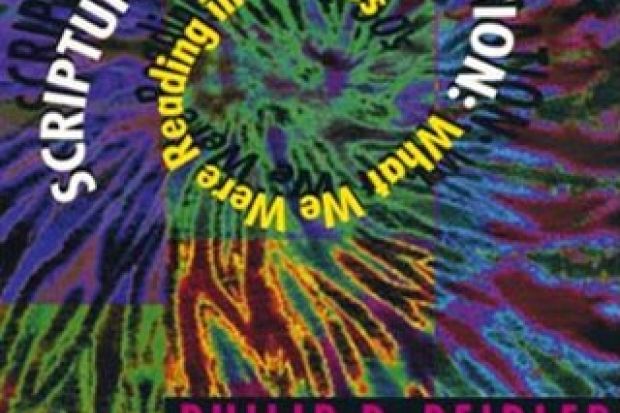Laurence Coupe, senior lecturer in English, Manchester Metropolitan University, is reading Philip D. Beidler’s Scriptures for a Generation: What We Were Reading in the ’60s (University of Georgia Press, 1994). “I wish I’d discovered this fascinating handbook before I wrote Beat Sound, Beat Vision, my study of the influence of the Beat movement on songwriters of the 1960s. It would have, first, assured me that I was on the right track with the Beat connection (there are entries on Kerouac, Ginsberg and company) and, second, confirmed my instinct that the ‘counterculture’ owed a great deal to that visionary tradition that, including the Beats, goes back to William Blake.”

Richard Joyner, emeritus professor of chemistry at Nottingham Trent University, is reading Paul Sabin’s The Bet: Paul Ehrlich, Julian Simon, and Our Gamble over Earth’s Future (Yale University Press, 2013). “Are the Earth’s resources finite? Ehrlich, the pessimist, and Simon, the optimist, offer diametrically opposite views on this question. They had a 10-year, $1,000 bet on what would happen to the price of four important metals. Read this excellent book to find out who won and what the result might mean.”

R. C. Richardson, emeritus professor of history, University of Winchester, has been re-reading Joan Thirsk’s Food in Early Modern England: Phases, Fads and Fashions 1500-1760 (Hambledon Continuum, 2007). “Here is a significant, insightful extension of this historian’s work on food production to diet itself. The poor as well as the elite are brought into focus with their access to free supplies of food from field and hedgerow. Discussion of 260 years of recipe books as well as the author’s own personal experience further enliven the picture.”

John Shand, associate lecturer in philosophy at The Open University, has been re-reading Kingsley Amis’ The Folks That Live on the Hill (Penguin, 1990). “One marvels at the skill of the writing. The care, the beautifully balanced sentences that do so much to enhance the humour…but also the psychological and moral honesty, devoid of priggishness, and full of human decency.”

David Shotter, retired professor of Roman history at Lancaster University, has been reading Christopher Gunstone’s The Greek Empire of Marseille: Discoverer of Britain, Saviour of Rome (Silver Shields, 2013). “Although this substantial and well-illustrated book traces the history of this classical city through three millennia, it centres on episodes in its relationship with the Greek states and Rome. Citing classical sources and archaeological research, Gunstone highlights the work of the astronomer and explorer, Pytheas, who in the 4th century BC put Britain on the map of the classical world.”
Register to continue
Why register?
- Registration is free and only takes a moment
- Once registered, you can read 3 articles a month
- Sign up for our newsletter
Subscribe
Or subscribe for unlimited access to:
- Unlimited access to news, views, insights & reviews
- Digital editions
- Digital access to THE’s university and college rankings analysis
Already registered or a current subscriber? Login

